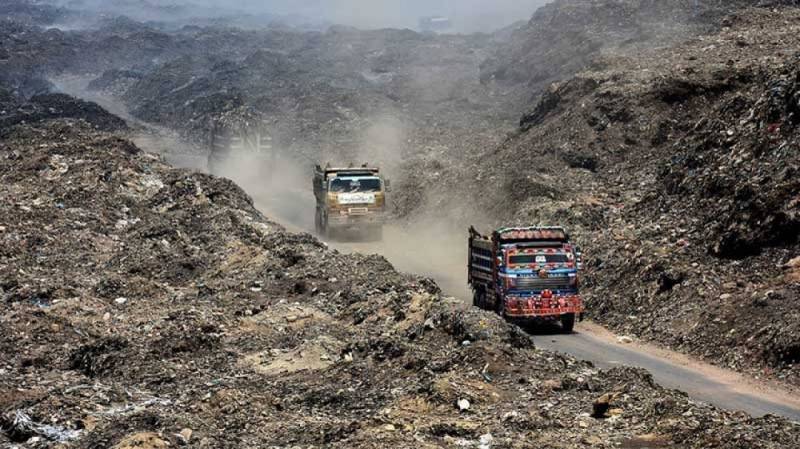
“Cleanliness is a freedom movement for an aspiring Nation. Culture of cleanliness will influence the hygiene, health, aesthetics and natural setting of the nation, which is a new age currency of a country.”—Vishwas Chavan
Words are insufficient to signify the importance of a clean environment—whether within or outside. Purity of both worlds, the physical as well as spiritual, is the key to converting negatives into positives. Just like the smile that lights up on eyeing cleanliness, dirtiness and stench give way to scowls and disgust. Besides giving an amiable look to surroundings, immense health benefits are also the outcome of sterile living. The good thing about cleanliness is that one need not have plenty of money and can manage within barest minimum. Ikechukwu Izuakor says: “Neatness and cleanliness is not a function of how rich or poor you are but that of mentality and principle.” In short, being immaculate displays one’s inner self.
When a dog intends to sit on the ground, it first sweeps its tail to remove filth providing lessons to humans who these days are mercilessly indulging in polluting nature with their thoughtlessness. Whether it is air, earth or water, the modern-day population has no qualms in turning this beautiful planet into a waste bin. Of course, in doing so they are actually jeopardizing their very own existence. Some countries have learnt to turn the tide by taking strict measures to minimize pollution while many have yet to wake up from their slumber.
Our country is among the latter, where the people have no shame in littering and moreover, expect the government to clean their homes and surroundings. The many local tourists, who have no money to pay taxes, throng the pristine northern areas in multitudes, scattering empty plastic bottles, shopping bags and other refuse on the mountains, in lakes and rivers. There is neither remorse nor guilt in dirtying these areas. When requested to clear up, they just shrug and ignore as if asked to commit a serious crime.
The kind of life we are leading today and the imperishable elements we deal with, management of waste has become a great challenge. When faced with such a dilemma, efforts should be made to change weakness into strength, but only those with some practical wisdom can actually appreciate and take positive steps in this direction. The same holds true for managing waste that is being efficiently done by some countries. Only those who realize that a few million dollars expended for the purpose of converting waste into energy can save billions in providing health facilities to the populace.
Who can deny the hazardous effects of rotting garbage and toxic industrial waste? These are detrimental for the health of all living beings as they are breeding grounds for germs and bacteria, responsible for wide-ranging diseases that can be contagious in nature leading to outbreak of epidemics. The experience of the Covid-19 pandemic should be an eye-opener during which every person on this earth felt the pinch of lockdowns and social distancing caused by the pandemic, emphasizing that health is a priority no government can and should ignore.
In our country when we talk about health, our focus is on doctors, hospitals, medicines, vaccinations, ambulances and emergency services which the citizen expects to be provided, preferably free of charge. No doubt, these are all extremely vital for treating the many ailments that can befall anyone, but no one seems to bother about the source of these diseases that can be combatted by installing incineration plants near the major cities of the country since maximum garbage and human waste is produced in the metropolises.
Incineration plants operating successfully in northern Europe and nearby in Singapore are also known as waste-to-energy (WTE) plants. The heat from the combustion is used to generate super-hot steam in boilers which in turn drives turbo-generators to produce electricity simultaneously reducing the waste to ash, up to ten percent of its original volume. Establishment of WTEs could lead to resolving many problems arising out of untreated garbage strewed around neighborhoods of the cities and towns.
An attempt was made by the Government of Punjab in 2016 to engage the services of a Turkish company to keep the city of Lahore clean but the result is a gigantic landfill at Lakhodair being claimed as the first ever scientific solid waste management facility over 52 hectares of land which, according to Samiullah Randhawa’s report has reached its maximum capacity due to mismanagement.
This speaks of the short-sightedness of our governing bodies that fail to perceive the future and love to appear champions of the people for momentary applause and probably a promotion. These temporary solutions are as temporary as their exponents that get exposed within a matter of a few years. If only our brilliant engineers were provided the opportunity to learn how to build WTEs, we would have done far better in handling our waste, an unavoidable by-product of modern life, transforming it into much-needed energy while contributing to a cleaner environment and a healthier nation.
We have yet to learn a lot from Singapore that is rapidly on the path ‘Towards Zero Landfill’ and ‘Towards Zero Waste’, goals that they are working at with great diligence. Already it has brought about a monumental increase in the rate of recycling and has successfully curtailed waste growth. In retrospect, had we looked towards the East rather than the West for guidance, we would have definitely fared a lot better.
The Ocean Cleanup services is another measure being taken up by Malaysia for example. A Netherlands based non-profit environmental organization founded in 2013 that develops technology to extract plastic pollution from the oceans to capture it in rivers before it can reach the ocean. We could learn a lot from these countries if we are truly interested in appearing progressive to both our people and the world.

